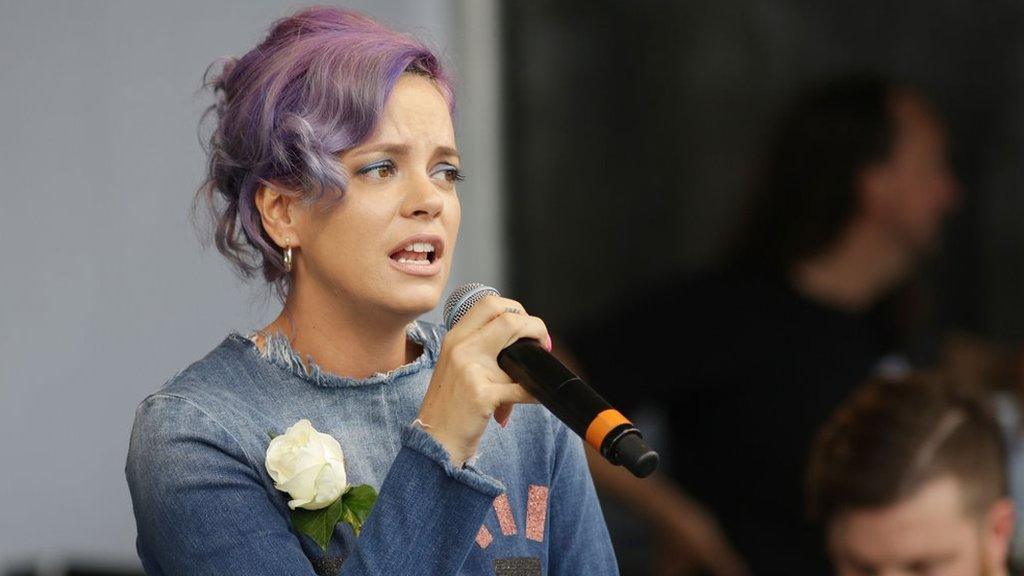Rape and sexual abuse in music: Fans tell their stories
- Published
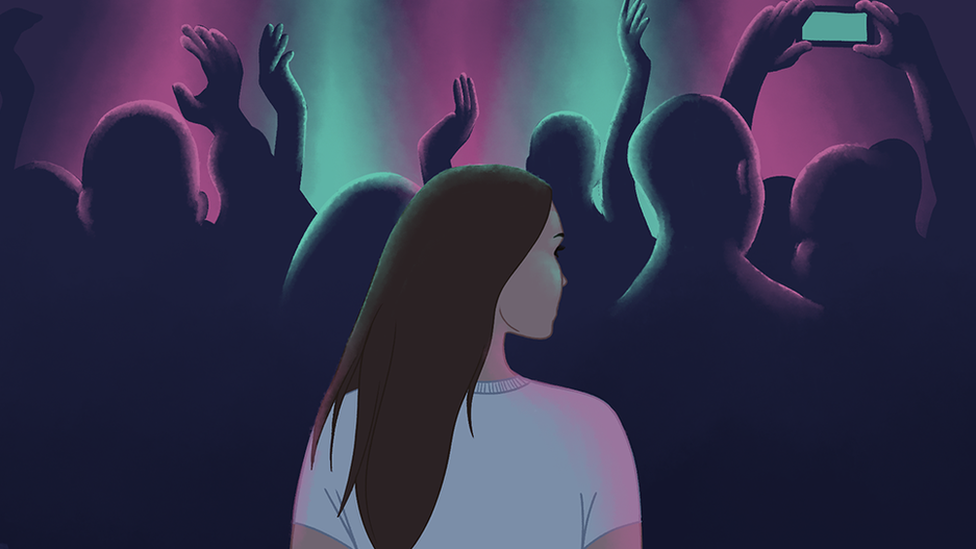
"He abused his power. I was young, I loved being able to go to shows and he used that because he knew that I would be easily led."
Rachel says that in 2011, when she was 18, a music industry figure raped her. She says until recently he was still working in the industry on the team of a "pretty big band".
We've changed her name to protect her identity. She's just one of several fans who've been speaking to Radio 1 Newsbeat, telling us stories of how "groupie" culture has led to them being sexually abused.
A warning: this article contains details of alleged sexual assaults which you may find upsetting.
We shared what we heard with the group that represents the industry - UK Music. It told us it takes sexual abuse and harassment "extremely seriously" and has signed up to codes of practices aimed at stopping "bullying, harassment and discrimination".
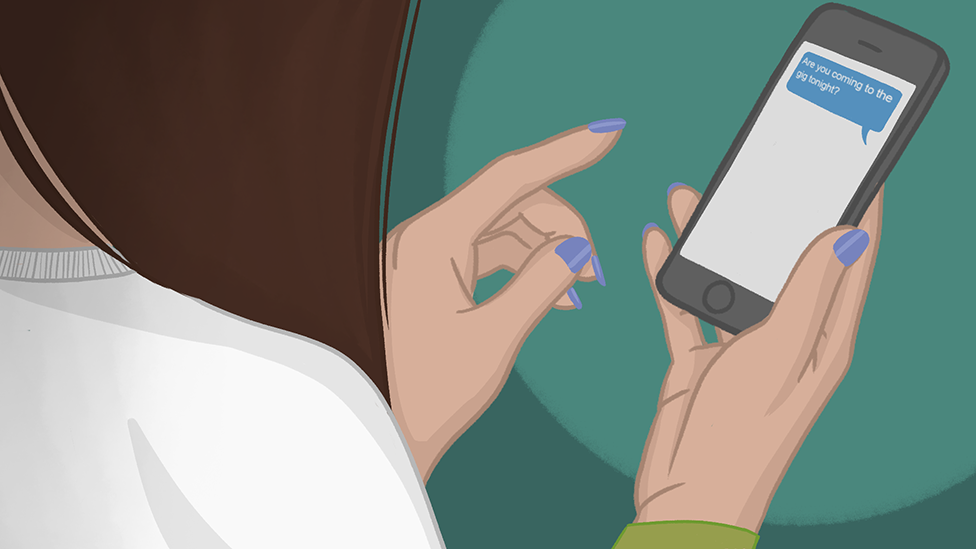
"I started a friendship with him back when I was like 14," Rachel says about the man. She doesn't know exactly how old he was, but says there were "rumours" he was older than 30.
He would use his position to get her into shows for free and introduce her to bands she liked. But then, after a night at the pub, they went back to his flat.
"I basically remember waking up laying on the side of his bed with him having sex with me. I remember pushing him off. I'm crying at this point and he just kept going and kept going."
She has no doubt that the way the music industry works contributed to what happened to her.
"It's an easy preying ground for these people to find fans that want that little bit more - they want that backstage pass, they want to meet the band, they want to get in for free.
"They can say: 'If you do this for me then I'll give it to you'. And some people have that mindset that if you say no they feel like they deserve it anyway.
"It's always been seen that being a groupie is just part of being in a band or in the music industry. When really it's not OK."
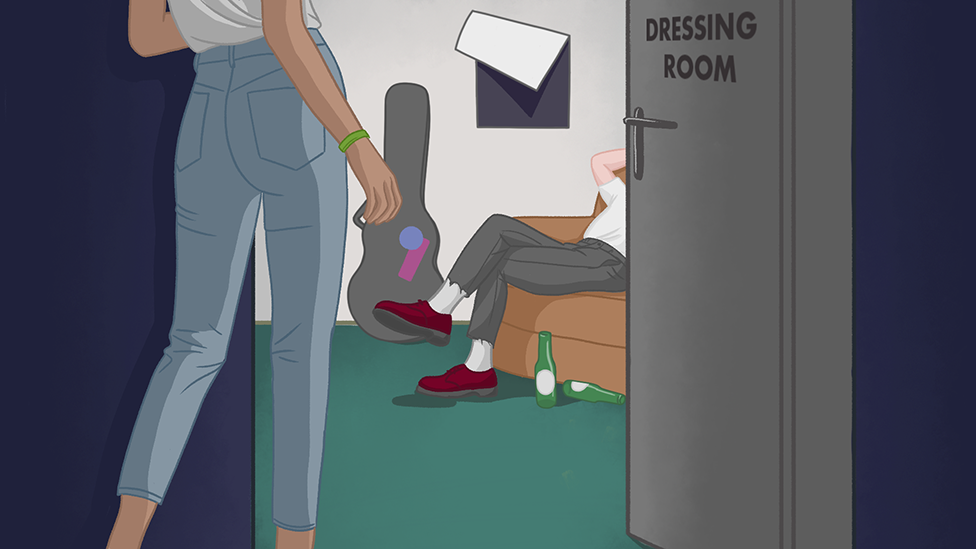
We've also heard stories from fans who say they've been abused by musicians themselves.
'They were my favourite band'
In 2017, Zoe accused the lead singer of pop-punk band Moose Blood of stealing nude photos from her phone and sharing them in the band's WhatsApp group.
Moose Blood have always denied this and last year announced they were taking a break from music, blaming "serious false accusations" against them.
Regardless of whether it's true or not, Zoe told us the situation only came about because she was such a big fan.
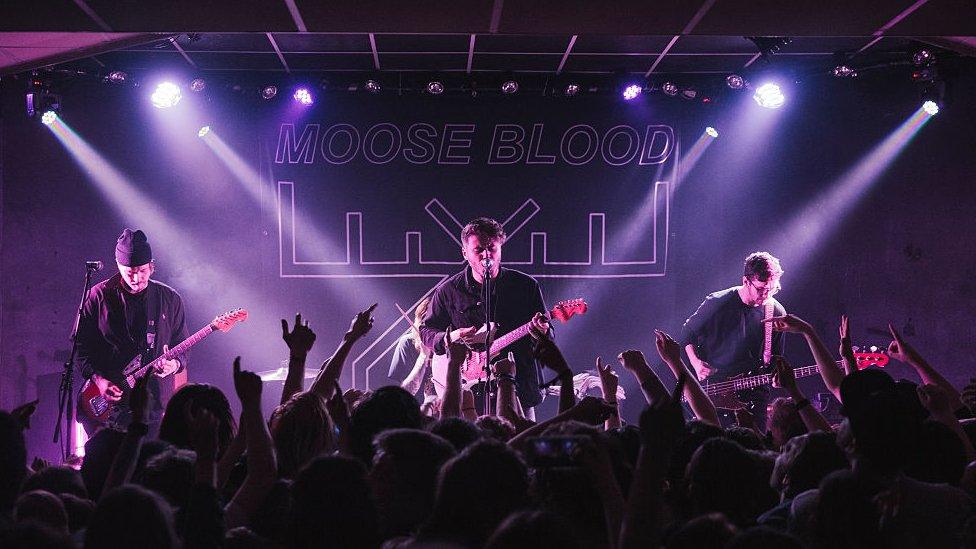
Moose Blood on stage in 2016
"I didn't realise it was a bad thing because they were my favourite band and I was a bit flattered by the attention.
"I was just thinking: 'Oh my God, my favourite band are here in my house', so I just didn't react to it the way I probably should have.
"I think bands need to take full responsibility and realise their status and the effect they can have on their fans."
Newsbeat tried to contact several bands and musicians - including Moose Blood - who say they have been falsely accused of sexual misconduct.
None of them agreed to be interviewed.
Laura did, though. She's a musician and, again, we've changed her name. She told us about a time she says someone from a well-known band approached her group of friends.
"He snatched my phone out of my hand and he was like: 'Oh I'm just putting my number in'.
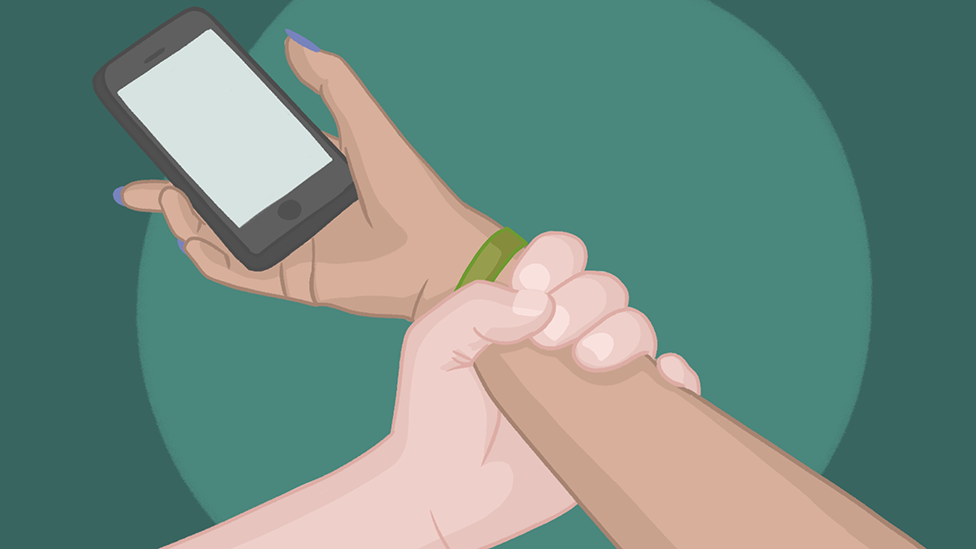
"Then he literally grabbed me by my throat, slammed me against the wall and shoved his tongue down my throat."
The band in question deny that this ever happened. Laura says what shocked her most was how she was treated.
"I was told by a few people in the industry that I shouldn't talk about my experience as it could jeopardise my career in music.
"It's like a massive manipulation because if the music industry is full of people that want to cover it up then these crimes are just going to keep happening."
So what is the industry doing? We met up with Dexter Hubbard, who runs Fearless Records in the UK, to find out.
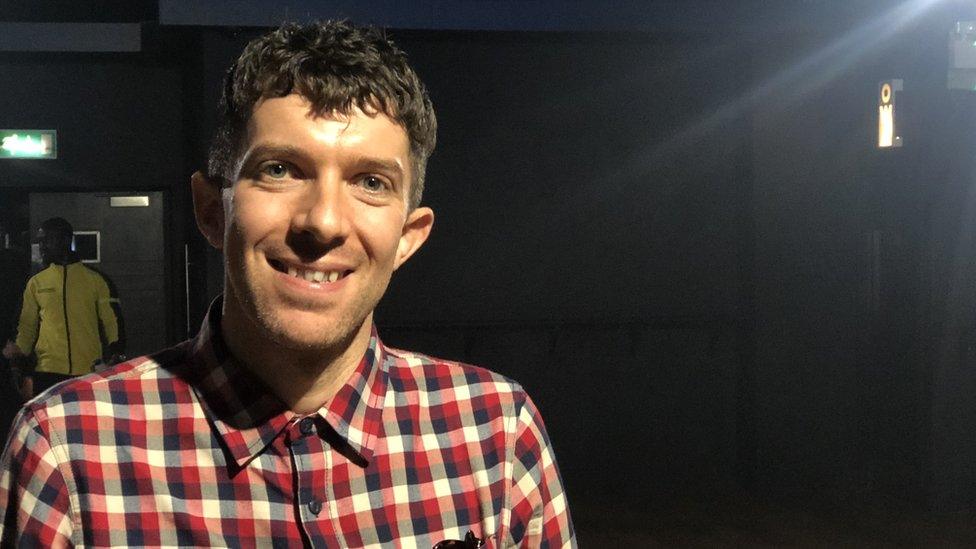
Dexter Hubbard says issues in the industry "are being dealt with head-on now"
He "confidently but not arrogantly" describes Fearless as "one of the leading labels" when it comes to emo and post-hardcore music.
But, like a lot of labels, they've had bands on their roster who've been accused of sexual misconduct.
Regardless of whether those accusations are true, Dexter told us the industry is "taking the problem seriously".
"Everybody just has to have honest conversations about what is expected. With our bands we underline the importance of the standards they need to set for themselves as well as us as a label.
"As an issue it has come to the forefront in recent years and the conversation is more upfront."
Another person who thinks things are "getting better" is Janine Shilstone, singer from the band Vukovi.
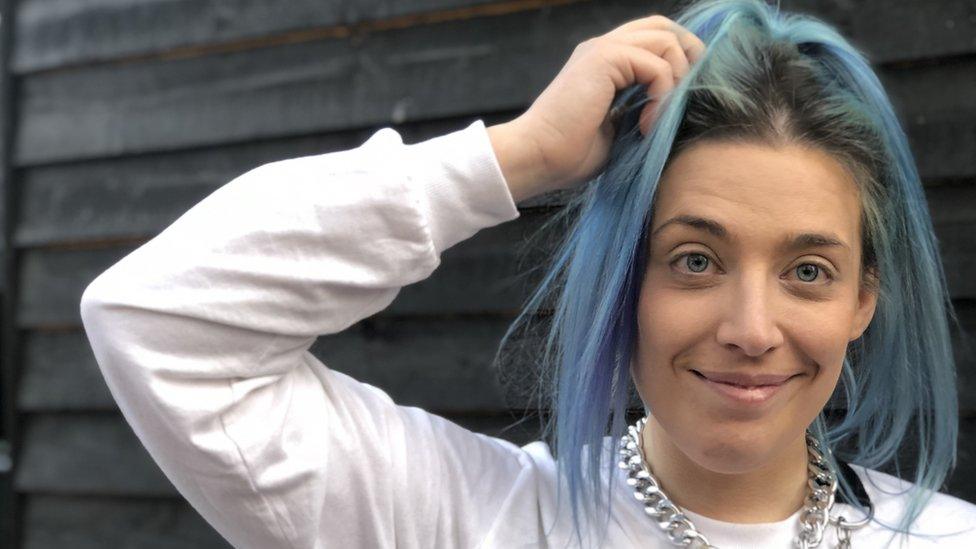
Janine says she knows women who work in the industry who've had "horrific things" happen to them
Their single C.L.A.U.D.I.A has been been getting support from the likes of Annie Mac on BBC Radio 1 - and it's about an experience Janine had with an industry figure who is "quite high-up".
She says she noticed the man "testing the water" with various women - and then he tried it on with her.
Janine says when she rejected him, he said: "Do you know who I am? I will ruin you."
She told us she also knows a few women in bands who've had "horrific things" happen to them.
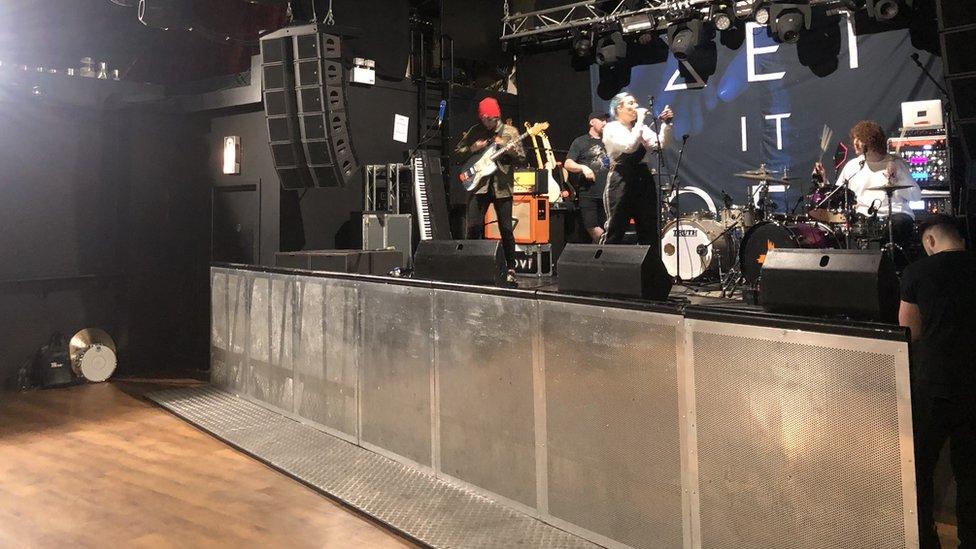
We met up with Janine after a soundcheck for one of Vukovi's gigs in London
"It blows my mind. A girl shouldn't be told: 'You just have to adapt and you just have to accept that's the way it is'.
"It shouldn't be like that and it has been for so long. But I do feel like things are starting to change a bit."


Follow Newsbeat on Instagram, external, Facebook, external, Twitter, external and YouTube, external.
Listen to Newsbeat live at 12:45 and 17:45 weekdays - or listen back here.
- Published7 June 2019
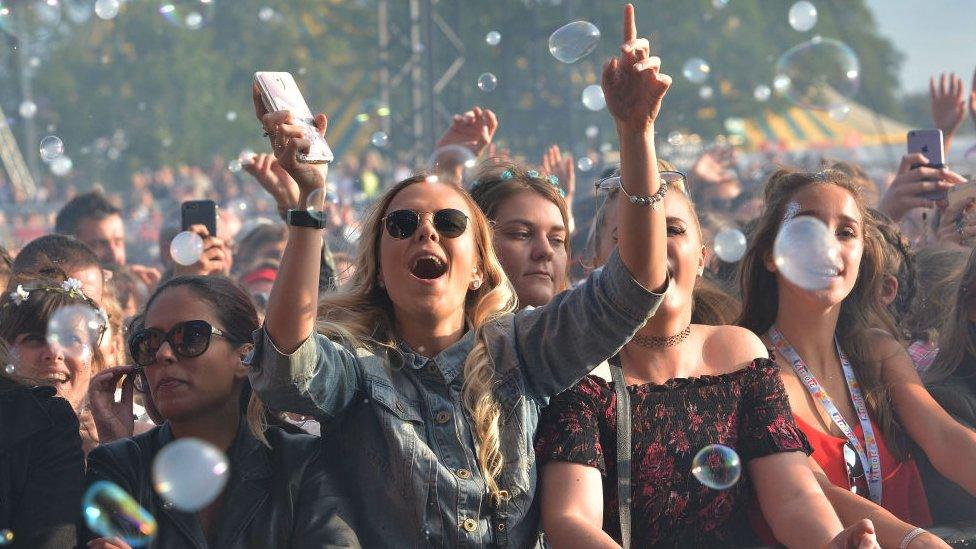
- Published18 June 2018
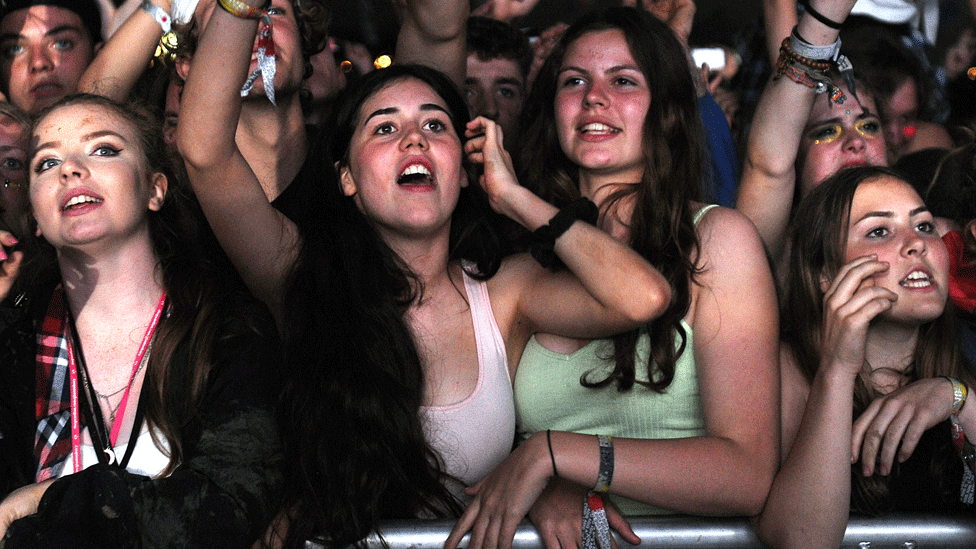
- Published9 October 2018
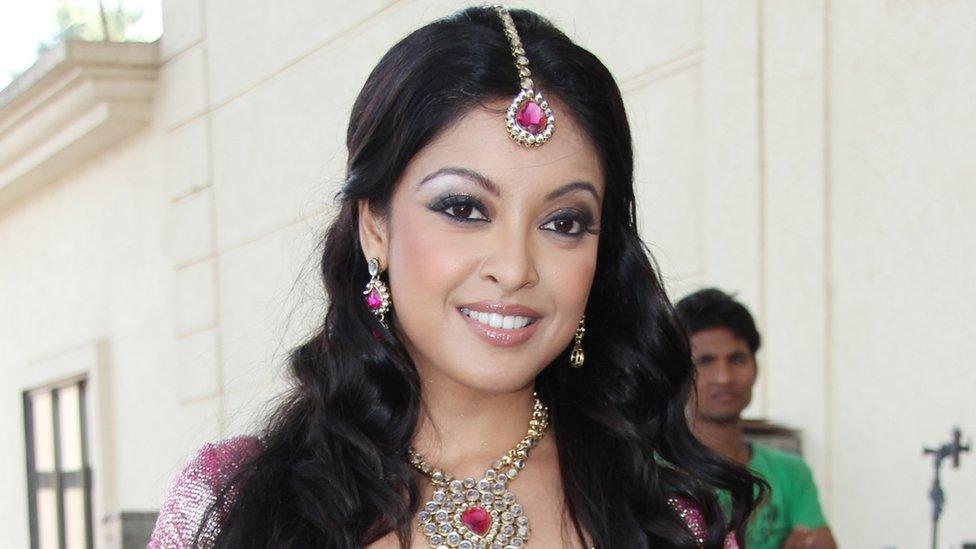
- Published17 September 2018
